Restaurant Insurance
Protection for Kitchens, Staff & Service
Running a restaurant takes more than great food—it takes preparation for the unexpected. From fire risk and kitchen accidents to food spoilage and customer injuries, we provide restaurant insurance that helps West Texas food businesses stay protected and open for business.

What Your Restaurant Insurance Can Include
General Liability Coverage
Protects against lawsuits from slips, falls, foodborne illness, or property damage involving customers.
Commercial Property Insurance
Covers the building, kitchen equipment, furnishings, and inventory from fire, theft, storm damage, and more.
Business Interruption Insurance
Reimburses lost income and ongoing expenses if your restaurant is forced to temporarily close after a covered loss.
Workers Compensation Insurance
Pays for medical expenses and lost wages if an employee is injured on the job.
Equipment Breakdown Coverage
Covers sudden failure of refrigeration, cooking, HVAC, or electrical systems that keep your operation running.
Food Spoilage Insurance
Helps cover the cost of perishable inventory lost due to power outages or equipment breakdown.
Coverage That Understands the West Texas Restaurant Industry
Small-town diners to city kitchens need the right protection
Restaurants in West Texas face a wide range of risks—from fryer fires in the kitchen to hail damage on the roof. Whether you operate a single-location cafe in Abernathy or a high-volume kitchen in Lubbock, your insurance should reflect the realities of running a food business in this region. Unpredictable weather, limited equipment repair access, and tight staffing margins make even short disruptions costly. We help food truck owners, local cafes, diners, bakeries, and full-service restaurants build policies that go beyond the basics and protect both daily operations and long-term stability.
Frequently Asked Questions
Is restaurant insurance required by law in Texas?
While restaurant insurance as a package isn’t required, some individual coverages are. For example, Texas businesses with employees are strongly encouraged—and often required by contracts or landlords—to carry workers compensation. Liability coverage is also typically required for leases and food service licensing. We’ll help you meet all state, local, and industry requirements while protecting your operation.
What types of restaurants need this coverage?
Any business that prepares or serves food should carry restaurant insurance. This includes food trucks, fast food, diners, bakeries, catering companies, and sit-down restaurants. If your business handles hot food, sharp equipment, public service, or employees—you’re exposed to risk. We’ll match your coverage to your size, hours, and operation type.
How much does restaurant insurance cost in Texas?
Costs vary based on size, location, payroll, and the type of food served, but many small restaurants in Texas pay between $2,000 and $5,000 annually for a full package. High-risk operations, such as those with open flames or alcohol sales, may cost more. We’ll break down your needs and tailor a policy that balances protection and affordability.
Does this insurance cover delivery services or catering?
Yes, but those services need to be specifically included in your policy. If employees use their own vehicles, you may need hired and non-owned auto coverage. Catering operations often require additional liability and property coverage for food off-premises. We’ll ask the right questions to make sure your full service model is protected.
What happens if my restaurant has to close temporarily?
Business interruption insurance helps cover lost income, payroll, rent, and ongoing expenses during a temporary closure caused by a covered event—like a fire or equipment failure. In West Texas, where delays in repair parts or inspections can extend closure times, this coverage can make the difference between reopening or shutting down for good. We always recommend adding it to your restaurant policy.


